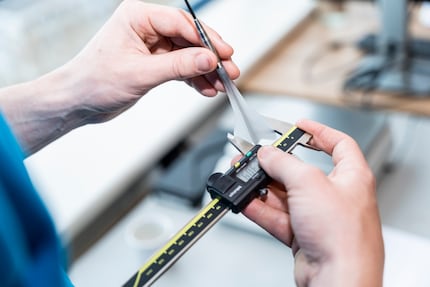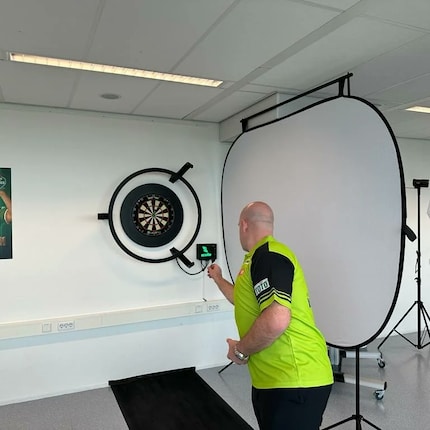

Darts revolution: TU Delft develops a dart that is 50 per cent more accurate
Delft University of Technology presented a dart on Tuesday that could trigger a revolution in the sport of darts.
Precision. A sure instinct. In darts, it's the little things, often millimetres, that make the difference between a triple 20 and a simple 1. Using findings from aerodynamics and flight mechanics, researchers at Delft Aerospace Technology may have developed a dart that can significantly improve the performance of dart players.
The dart should be less sensitive to mistakes made by the player and therefore almost 50 per cent more accurate than a conventional dart, according to the researchers. The improvements are primarily in the areas of aerodynamics, weight distribution and interaction on the dartboard.
The researchers recognised a lot of potential for improvement in darts. "First of all, little attention has been paid to aerodynamic optimisation in development so far. In addition, there are many possibilities in the design of the dart within the rules and dart players have the freedom to choose their own darts, so the performance of the dart can make a big difference," said Michiel van Nesselrooij, one of the Delft researchers and co-founder of Rocket Darts. This company was founded as a spin-off from TU Delft as a result of research into the dart.

Source: TU Delft
In order to analyse the trajectory of the dart, the researchers first developed a dart robot that throws the darts evenly. They measured the launch position, trajectory, speed and position on the disc in order to investigate the sensitivity of a dart when simulating small errors in the throw.
Darts professionals become part of the research
The TU Delft invited the five Dutch darts pros Michael van Gerwen, Danny Noppert, Dirk van Duijvenbode, Vincent van der Voort and Raymond van Barneveld to the press presentation on Tuesday. They were allowed to try out the new dart.

Source: Toto Dart Kings
The professionals also took part in a scientific study, the results of which were used to further develop the new dart. The TU Delft researchers analysed the individual throwing styles, particularly with regard to the players' arm movements and the dart trajectory after the moment of release. Using these measurements, the researchers analysed the different throwing techniques between amateurs and professionals, but also between individual professional dart players. The focus was on the repeatability of the throws and their effect on accuracy.
Delft University of Technology has already successfully demonstrated its expertise in working with athletes in the past. In 2017, it helped Dutch cyclist Tom Dumoulin to win the Giro d'Italia with an improved, more streamlined time trial suit.
Cover photo: Elizaveta Maximova/PixabayMy interests are varied, I just like to enjoy life. Always on the lookout for news about darts, gaming, films and series.






